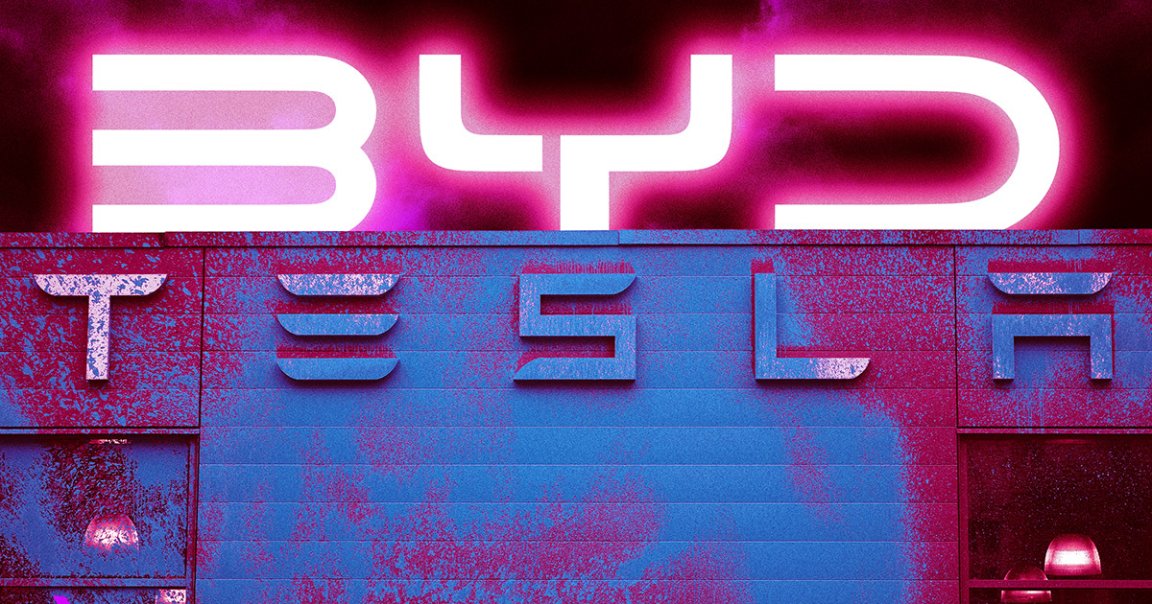
Things have been looking rocky at Tesla for a while now. Even before CEO Elon Musk began ripping through the federal government to global outcry, its late-2024 sales were way down.
Now that feels like a lifetime ago, as mass recalls, performance issues, and anti-Musk protests have united to erase some $800 billion in Tesla’s market value.
And as the once-mighty Tesla falls by the wayside, a rising challenger is beginning to eat Musk’s lunch.
BYD is the Shenzhen-based EV company quickly replacing Tesla as the world’s foremost seller of electric and hybrid vehicles. It just released its earnings results for the first quarter of 2025, showing sales up 58 percent sold in the same period of 2024, from around 400,000 vehicle sales to nearly a million.
The automaker, which recently revealed a vehicle battery that can charge in just five minutes, also hit a new record in EV exports at 206,084 units, up 111 percent from last year.
Tesla’s sales results won’t go live until tomorrow, but analysts are warning of continued volatility for the company even as hopeful investors pump its stock.
Though Tesla’s sales in China have ticked up after a dismal March, its total sales are expected to fall to between 315,000 and 369,000 — well below Q1 of 2024, which saw north of 380,000 units — thanks to plunging consumer sentiments in the US and Europe.
It doesn’t help that the US green energy market is rapidly shrinking as Wall Street and manufacturing giants backtrack on climate pledges, and Musk’s buddy-in-chief threatens to end EV tax credits — the secret sauce behind Tesla’s rise, not to mention Musk’s fortune.
Though Tesla’s long-term standings look grim, its weaning lifeforce could get a small jolt thanks to Trump’s looming auto tariffs, which experts note could benefit Tesla more than any other company, at least in the short term. Though every US car company has made its vehicles with a combination of US, Mexican, and Canadian labor after the North American Free Trade Agreement (NAFTA) took effect in 1994, Tesla’s supply chain is said to be more dependent on US workers than its automotive rivals, giving it a temporary leg up.
That hasn’t stopped Musk from arguing that the “tariff impact on Tesla is still significant,” which is probably true, though the real question is how big an impact Tesla will feel compared to companies like Ford and General Motors. “Tesla is NOT unscathed here,” the tech tycoon wrote, presumably trying beat the oligarchy accusations.
What happens next could be a matter of US history. The unprecedented tariffs are expected to be formally announced tomorrow on what Trump’s camp is calling “Liberation Day.” Financial experts note that this will be the “biggest tax hike in US history,” as odds of a recession creep up and unemployment anxiety hits levels not seen since 2009.
Regardless of how Tesla weathers the trade war, it likely won’t be enough to catch back up to BYD. Thankfully, the Chinese EV giant is open to sharing its technology with foreign companies, even after Musk laughed in its face. Talk about manners.
More on EVs: FBI Launches Task Force to Protect Tesla